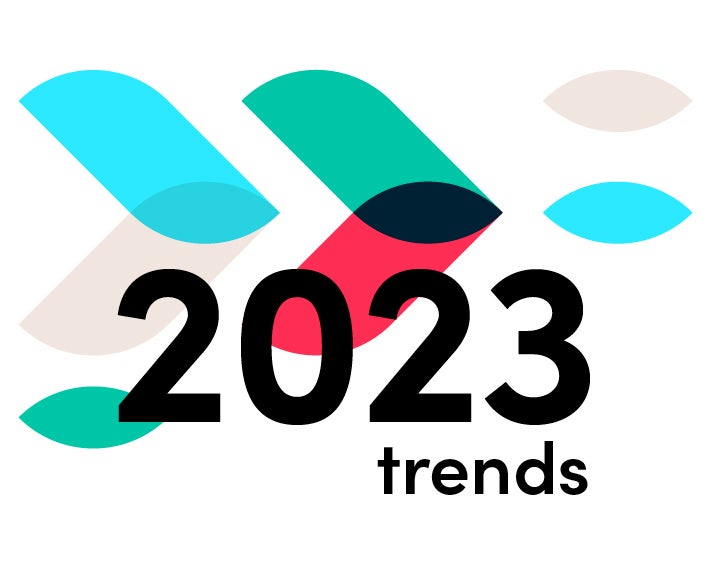
In 2023, there is a huge pressure on companies across all sectors to continue to make money while also keeping abreast of modern cultural and scientific expectations.
Even in the throes of a recession, the significance of employee wellbeing cannot be overlooked. It is people who are responsible for profits. Keeping staff happy, therefore, should form a core part of any business strategy.
As for action on climate change, the stark reality of extreme weather conditions around the world is plain to see. Decarbonising business is not only a human imperative, for moral reasons, but also an economic one. Environmental, social and governance (ESG) credentials are now key considerations for shareholders and investors.
Amid high costs, the focus shifts to staff retention
As the focus of HR appears to shift from recruitment to retention, companies must consider how they can support their staff through a cost-of-living crisis, while keeping them motivated and engaged.
Michael Erisman, the chief people officer at Reputation, a software company specialising in staff and customer feedback, says that a competitive salary, benefits and flexible working options represent “basic table stakes to retaining employees” in 2023.
As saliently though he says that companies should conduct regular checks on their culture and employee experiences. “Eliciting feedback through employee surveys, monitoring public forums like Glassdoor and paying attention to social media will enable HR professionals to understand what is going well and what could be improved,” he says.
People, Erisman adds, want to feel like they are getting better at their jobs over time and to understand how their role, regardless of seniority, “is contributing to the organisation as a whole.” Regular feedback, he says, is “essential to employees feeling like they are valued and that they matter.”
Jason McClelland, the chief marketing officer at image aggregator Shutterstock, agrees. “At every level, a sense of ownership, belonging and a connection to the business’s overarching mission is essential,” he says. “Today, talent expects the traditional approach of progression, benefits, flexibility and development – they need that sense of purpose. That’s what will retain talent.”
For businesses that are in a position to offer salary increases, Sandi Wassmer, the chief executive of the Employers Network for Equality & Inclusion (ENEI), says it is important that these are delivered in order of priority and with perspective. “It is essential to ensure that those who are the hardest hit get as much benefit as possible, whilst also maintaining salary benchmarks at the appropriate levels,” she says.
Rather than “simply giving a standard percentage increase to all employees across the board”, Wassmer suggests companies should “consider giving those at the lower end of the scale a higher percentage increase and then decrease the percentage points as you go up the salary bands.”
Ensuring your workplace is values-led
According to Wassmer, a diverse workforce can facilitate a “supportive office culture, where staff feel safe, secure, valued and respected.” Companies in 2023, she says, should aspire to be “values-led”.
Jenny Hinde, executive director of The Clear Company, a diversity consultancy firm, warns that businesses that lack diversity risk alienating existing staff and missing out on new talent. “Increasingly, organisations providing services to other businesses are being asked to evidence their capability in the diversity and inclusion space as part of the procurement process,” she says. “If you are unable to attract, recruit or retain diverse talent, you are not a sustainable business and therefore investors will be deterred, regardless of the market you work in.”
Hinde says companies must prioritise how they are perceived, particularly by younger workers. “Employees are looking for employers that reflect their values,” she explains. “In a candidate-driven world, a non-inclusive recruitment experience, a homogenous leadership team, or a failure to acknowledge or address pay gaps will affect the decisions that candidates make.”
While Hinde notes that affirmative actions such as anonymising CVs can be a “powerful tool within a holistically inclusive process”, she warns that this will only serve as a “sticking plaster” if done in isolation. Rather, she says, “the starting point for change is inclusive job design, which requires employers to be creative and to truly challenge job descriptions that have often not changed for some time.”
Reducing bias through evidence-based practice and educating hiring managers, Hinde says, is key at every stage of recruitment. “Educating hiring managers to understand the need to recruit inclusively, combined with the skills to do so, is imperative in moving away from gut instinct and the ‘like me’ bias that permeates many processes today.”
Investing environmental sustainability
As consumers and investors alike become more climate-conscious, says Gabrielle Ginér, BT’s head of environmental sustainability, “it makes business sense” for companies to decarbonise as a priority. “Companies that follow the science and take action on science-based targets are more likely to be successful than the ones that don’t. People care about where their money is going.”
This concern, notes Dr Megan Morikawa, global director of sustainability at Iberostar, the hotel chain, is particularly prominent within the tourism sector. “We’ve seen the number of conscious travellers – those who consider the environmental and social impact of their holiday – grow significantly.” Quality tourism, she says. Is increasingly related to “conscious tourism, with sustainability being a key factor in the purchasing decision.”
Accordingly, Iberostar, she says, is committing to a circular economy. “This includes becoming waste-free by 2025, carbon-neutral by 2030, and 100% responsible in our seafood supply chain by 2025, as well as improving the health of the ecosystems that surround our hotels.”
In the technology sector, notes Sheryl Moore, head of Sustainability at Stone Group, an IT consultancy, there is a concerted effort to use “energy-efficient products and recycled components in new products, such as Microsoft’s Ocean Plastic Mouse.”
Not only does mismanaging sustainability have an impact on the environment, Moore adds, but it also a has serious financial ramifications. Companies need to be careful, she points out, about “wasting money on heating due to poor insulation” and “aim to reduce excess travel by embracing virtual meetings”.
In 2023, Moore says Stone is looking to install solar panels at its headquarters and expand its EV fleet. “We want all our stakeholders to embrace the circular economy so that we can all improve our environmental sustainability. We have already committed to climate action pledges and are looking to further reduce our energy consumption – this has included converting to green electrical energy and reducing our packaging by 5%.”
Jennie Colville, head of ESG and sustainability at Landsec, a property investment company, notes that buildings have a key role to play in mitigating climate change. The company’s zero transition investment plan, she explains, involves “removing gas from our office portfolio and increasing the amount of renewable electricity we generate on-site, and we’re rethinking how we approach developments, with our first net-zero building due to be completed next month.”
A year for action
Ultimately, the next 12 months will test companies’ capacities for good. Those that look after their people and the planet will be looked at favourably.
Businesses that fail to meet modern expectations around HR and the environment risk being left behind. Progress is the watchword for 2023. Ethical and sustainable leadership is no longer optional.

In 2023, there is a huge pressure on companies across all sectors to continue to make money while also keeping abreast of modern cultural and scientific expectations.
Even in the throes of a recession, the significance of employee wellbeing cannot be overlooked. It is people who are responsible for profits. Keeping staff happy, therefore, should form a core part of any business strategy.
As for action on climate change, the stark reality of extreme weather conditions around the world is plain to see. Decarbonising business is not only a human imperative, for moral reasons, but also an economic one. Environmental, social and governance (ESG) credentials are now key considerations for shareholders and investors.

